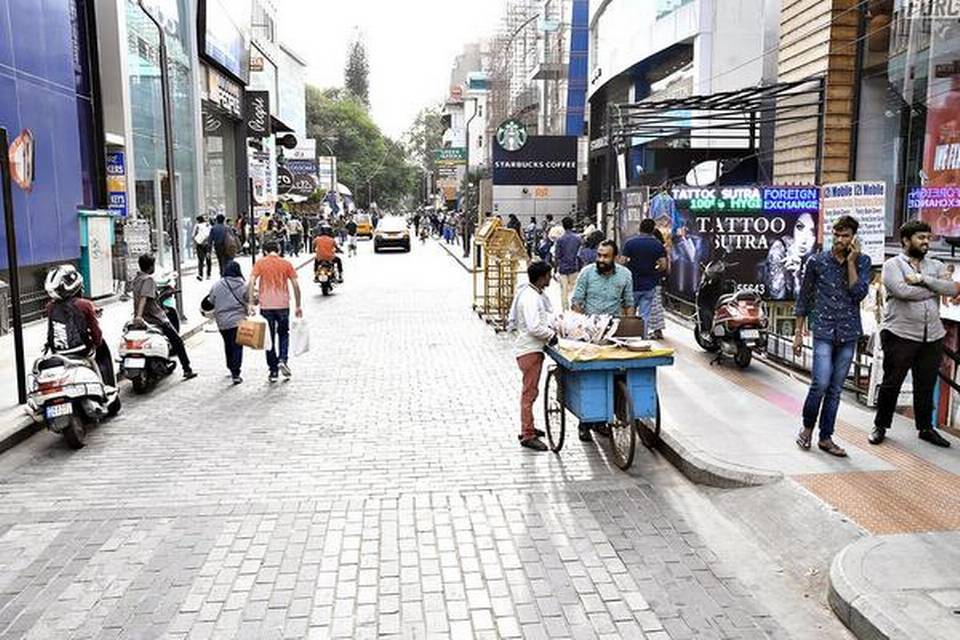
Recently, civil society activists protested the Bruhat Bengaluru Mahanagara Palike’s (BBMP) decision to outsource the design, redevelopment and maintenance of Church Street to private agencies. Two reasons were advanced: first, that disproportionate amounts of money were spent on a minor road stretch and second, that this was a privatisation of public assets.
We argue that this was not privatisation at all and that distributive justice arguments in city development must level up rather than drag down. Privatisation occurs when property rights and risks are transferred from the State to private hands through an outright sale, lease or similar concession agreement spanning a decade or more. No such strategy was deployed for the Church Street redevelopment. It was executed through an Engineering Procurement Consultancy contract where project funding and risks were borne entirely by the BBMP.
The maintenance contract did not transfer ownership either; like the rest of the city, cleaning and maintenance was sought to be handed over to a private contractor, but for Church Street higher standards had to be maintained. If no transfer of ownership was taking place, what rankled activists?
It appears that activists were concerned about unbridled public access to Church Street. However, public access to the street is not the same as the transfer of ownership and privatisation. We must build open and inclusive cities where common spaces are not “enclosed”. However, common spaces need not be publicly owned or managed. Our city parks and museums are publicly owned but have restricted access. Lakes in Bengaluru are publicly owned, yet unrestricted access has spurred civil society demands for “community”-State co-governance structures to regulate unhindered access and exploitation.
Open and inclusive cities cannot be built by ensuring State ownership or asserting utopian unhindered access rights. The civil society must embrace locally responsive legal and regulatory strategies that ensures public-ness without conflating it with public/ State ownership or unhindered access claims.
Secondly, civil society activists were incensed by the BBMP’s allocation of disproportionate funds (allegedly ₹15 crore) for the redevelopment of a 715-metre-long street. This objection can take two forms: that too much money has been spent on one road or that the money has been spent on the wrong road.
Let’s address each separately. Ironically, civil society groups have sustained litigation for over a decade to ensure higher quality roads and footpaths in Bengaluru. When quality roads with modular underground trunk infrastructure are built, we protest that “regular” roads cost seven times less. The second strand would reasonably ask why spend this money on Church Street? Clearly, the BBMP must institutionalise a process to consult transparently and widely before it embarks on capital investment projects. Moreover, all such investment must be duly recouped over the medium term with higher property taxes, betterment levies, and higher stamp duty on adjoining properties. In this way, no part of the city gets a free lunch. Distributive justice in city infrastructure should level up the quality of public infrastructure rather than drag us into a deeper morass. High quality public infrastructure in an open and inclusive city can be a tide that lifts all boats.
Sudhir Krishnaswamy and Champaka Rajagopal wrote this article which was published in The Hindu on 01 July 2018. Access it here.
